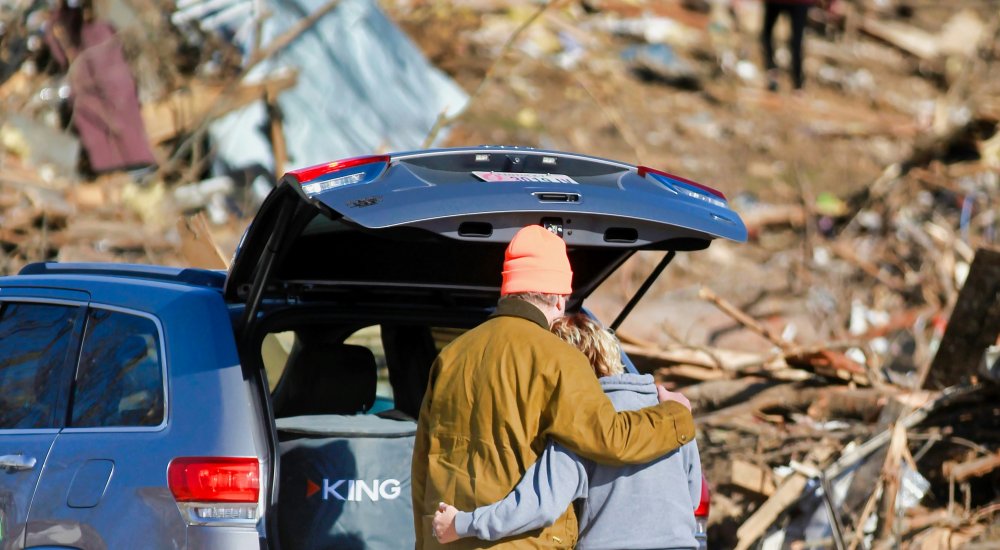HORIZON EUROPE┋Open topic on citizen and regional and/or local authorities' engagement in enhanced disaster risk awareness, including education, and preparedness
HORIZON-CL3-2025-01-DRS-01

Expected Outcome
Project results are expected to contribute to one or both of the following expected outcomes:
- Improved disaster preparedness, learning from past disasters or crises, and better sharing of knowledge on lessons learned and risk awareness to citizens and regional and/or local authorities, understanding what countermeasures were taken in previous incidents and exploring currently available products to improve future outcomes;
- Reinforced dialogue and cooperation among scientific and technical communities, stakeholders, policy-makers and regional and/or local communities in disaster risk reduction for an enhanced uptake of research outputs.
Scope
Societal resilience and preparedness to disasters are shaped by the way authorities and citizens exchange, access, understand, and react to information about hazards. As a result, anyone may become more vulnerable if barriers to these processes occur. Strengthening societal resilience to disasters, therefore, requires investment by authorities at operational, strategic, and policy levels to improve engagement with citizens and integrate inclusive communication processes. In order to achieve this, it is important to take into account the diversity of citizens, be it relating to age, gender, educational levels, disability, and other social characteristics.
The European Commission is developing and implementing an EU Preparedness Union Strategy following whole-of-government and whole-of-society approaches. The EU’s disaster resilience goal No. 2 is “Prepare – Increasing risk awareness and preparedness of the population[1]. The proposals’ outcomes should especially work towards supporting these two policies and follow the recommendations of the Directorate-General for European Civil Protection and Humanitarian Aid Operations (DG ECHO) to ensure a successful uptake to the end users. Proposals are invited to utilise the Special Eurobarometer on “Disaster risk awareness and preparedness of the EU population[2]" as evidence of needs.
Under the open topic, proposals are welcome to address new, upcoming or unforeseen challenges and/or creative or disruptive solutions and technology, including the use of AI, for improving disaster preparedness, risk awareness by citizens and regional and/or local authorities, and for reinforcing the cooperation among scientific / technical communities and policy-makers / regional and/or local authorities for an enhanced sharing of knowledge and uptake of research outputs. If they relate to some of the topics covered by Horizon Europe Calls Disaster-Resilient Society 2021-2022 or 2023-2024, the proposals should convincingly explain how they will build on and not duplicate them.
Proposals are expected to address one of the following options:
Option a: Tools and solutions to improve disaster preparedness and risk awareness by citizens and regional and/or local authorities;
Option b: Mechanism to enhance dialogue among research/academic communities, practitioners and regional and/or local authorities for sharing knowledge and effectively uptake research results.
Adapted to the nature, scope and type of proposed projects, proposals should convincingly explain how they will plan and/or carry out demonstration, testing or validation of developed tools and solutions. Furthermore, proposals should outline the plans to develop possible future uptake and upscaling at national and EU level for possible next steps once the project is finalised. Proposals should also consider, build on if appropriate and not duplicate previous research, including but not limited to research by other Framework Programmes’ projects. Coordination among the successful proposals from this topic should be envisaged in order to avoid duplication and to exploit complementarities as well as opportunities for increased impact.
Proposals funded under this topic are expected to engage with citizen organisations, regional and/or local authorities and practitioners (first and second responders/civil protection agencies/disaster management authorities), private sector operators during the lifetime of the project, including validating the outcomes, with the aim of facilitating future uptake of innovations for the Disaster Risk Reduction community.
This topic requires the effective contribution of SSH disciplines and the involvement of SSH experts, institutions as well as the inclusion of relevant SSH expertise, in order to produce meaningful and significant effects enhancing the societal impact of related research and innovation activities.
[1] (2023/C 56/01); COM (2023) 61 final.
